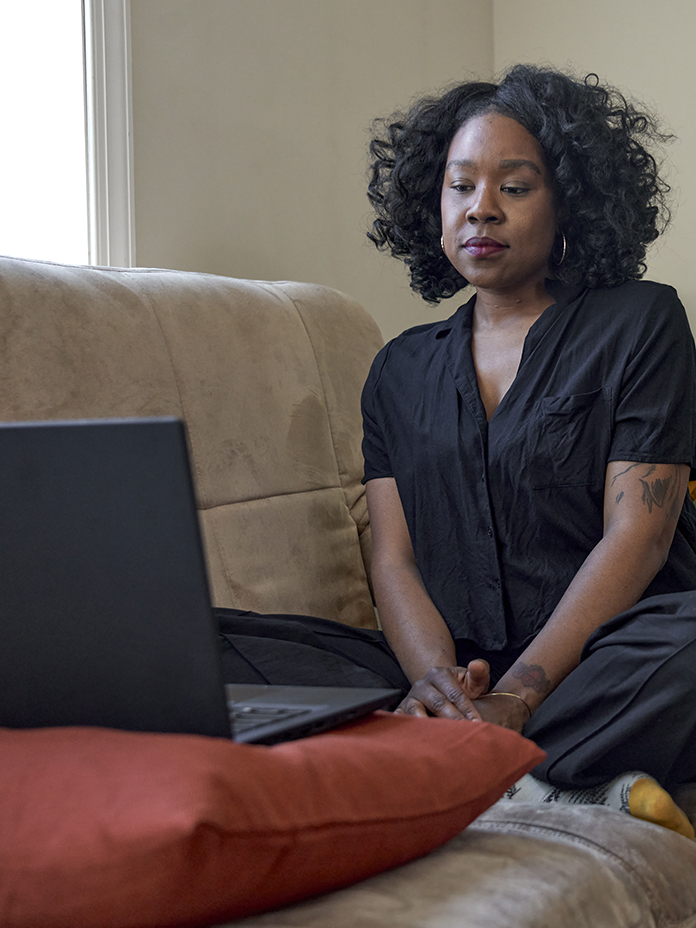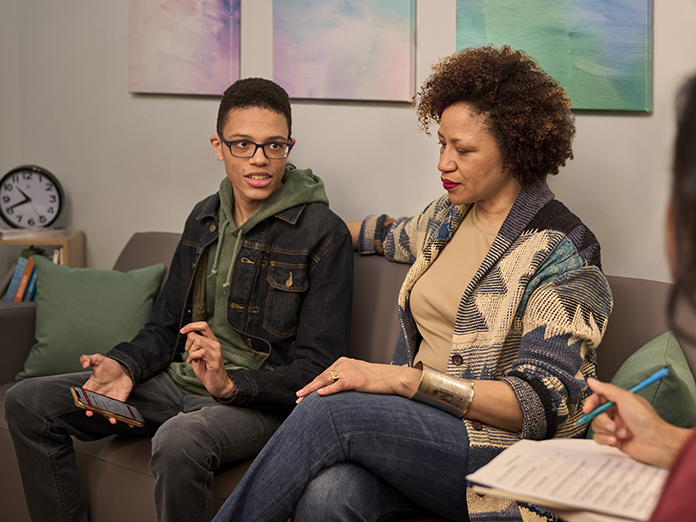Links to various Aetna Better Health and non-Aetna Better Health sites are provided for your convenience. Aetna Better Health is not responsible or liable for non-Aetna Better Health content accuracy or privacy practices of linked sites or for products or services described on these sites.
Are you thinking about suicide?

Are you thinking about suicide?
If you have thoughts of hurting yourself or others, get help now. You can contact the 988 Suicide and Crisis Lifeline if you are having mental health-related distress. You can also get in touch if you’re worried about a loved one who may need crisis support.
- Call or text 988
- Chat at 988lifeline.org
Through this lifeline, you can connect with a trained crisis counselor. Keep in mind that 988 is always:
- Confidential
- Free
- Here for you 24 hours a day, 7 days a week
Learn to spot the signs of suicide
You can learn more about the warning signs of suicide in yourself. Increasing signs of depression can also mean a higher suicide risk, but general signs for others include:
- Threats or talk of harming themselves or others
- Talking about feeling hopeless, being a burden to others or having no reason to live
- Giving away their things
- Making a will or funeral plans
- Buying a weapon
- Sudden cheerfulness or calm after a phase of depression
Do you notice these signs in yourself or someone you care about? If you do, it’s important to get help now.
3 steps to help someone in a crisis
3 steps to help someone in a crisis
When someone we care about is struggling with a crisis, it's hard knowing what we can do to help. Or where to start. Here are a few steps you can start with to help you show your support.
Ask them
Asking the question, “Are you thinking about suicide?” says that you’re open to talking about suicide in a nonjudgmental and supportive way. Another question you can ask is, “How can I help?” Questions like these can open a door for the person to share any emotional pain that they’ve been feeling.
Be there
Being there for someone with thoughts of suicide is lifesaving. It increases their connectedness to others and limits their isolation. This has shown to be a protective factor against suicide. There are many ways you can show support for someone at risk. This could mean being close to them or physically present for them. Or speaking with them on the phone when you can. Listening to them is a big part of being there for the person, too.
Help keep them safe
Once it’s clear that suicide has been on the person’s mind, it’s important to find ways to help keep them safe. Have they already done anything to try to harm themselves before talking with you? Do they have ideas about how they would harm or kill themselves? Do they have a specific, detailed plan? Knowing the answers to some of these questions can help you understand what level of danger the person is in. And you can get a better understanding of what you can do to help them, whether it’s calling a suicide hotline or taking them to the emergency room.
For more info on what you can do to help someone in a crisis, visit Bethe1to.

Talking openly about suicide

Talking openly about suicide
Talking is the first step to preventing suicide. You might think that saying the wrong thing will make it worse. So, you end up not saying anything. But a few kind words can make the difference in connecting someone to help. Or supporting someone who’s gone through a suicide loss.
To learn how others are talking more openly about suicide, just visit Talk Away the Dark.



